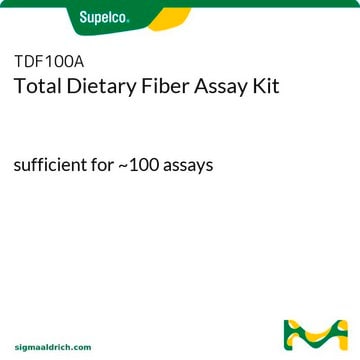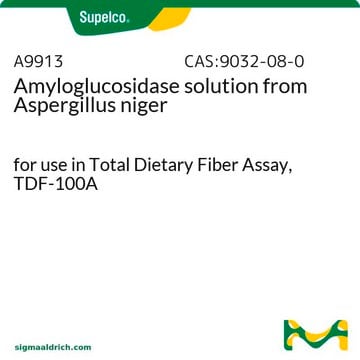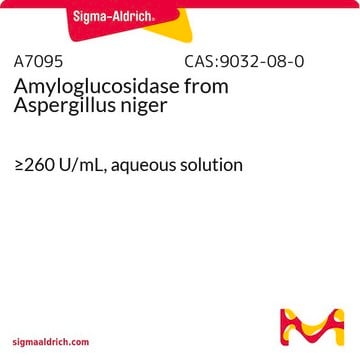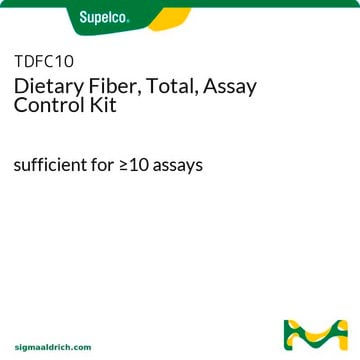C8656
Celatom®, acid-washed
for use in Total Dietary Fiber Assay, TDF-100A
About This Item
Recommended Products
form
powder
quality
for use in Total Dietary Fiber Assay, TDF-100A
technique(s)
photometry: suitable
loss
≤1% loss on ignition
color
white
application(s)
food and beverages
general analytical
SMILES string
O=[Si]=O
InChI
1S/O2Si/c1-3-2
InChI key
VYPSYNLAJGMNEJ-UHFFFAOYSA-N
Legal Information
Signal Word
Danger
Hazard Statements
Precautionary Statements
Hazard Classifications
STOT RE 1 Inhalation
Target Organs
Lungs
Storage Class Code
6.1D - Non-combustible acute toxic Cat.3 / toxic hazardous materials or hazardous materials causing chronic effects
WGK
WGK 1
Flash Point(F)
Not applicable
Flash Point(C)
Not applicable
Personal Protective Equipment
Certificates of Analysis (COA)
Search for Certificates of Analysis (COA) by entering the products Lot/Batch Number. Lot and Batch Numbers can be found on a product’s label following the words ‘Lot’ or ‘Batch’.
Already Own This Product?
Find documentation for the products that you have recently purchased in the Document Library.
Customers Also Viewed
Our team of scientists has experience in all areas of research including Life Science, Material Science, Chemical Synthesis, Chromatography, Analytical and many others.
Contact Technical Service











